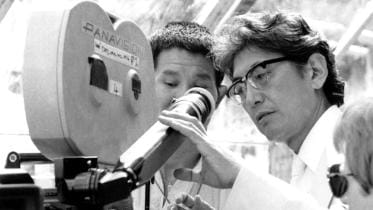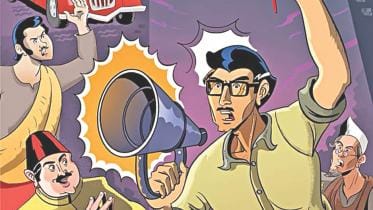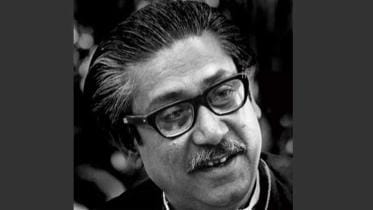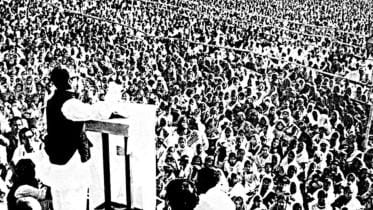Bangabandhu Sheikh Mujib
Bangabandhu through the eyes of Japanese filmmaker, Nagisa Oshima
The Japanese film director, Nagisa Oshima is a glaring exception. Primarily known for his New Wave style of filmmaking, in many cases, Nagisa Oshima has brought up rebellious and underprivileged youths in his films. Compared to the usual subject matters of his films, it is interesting to see that his two documentaries focusing on Bangladesh, Joi Bangla (1972) and Rahman: Father of Bengal (1973), are different. He finds the intense glory of Bangladesh's achievements in the context of 1972-73 even when the country was in a war-torn condition following the war in his film Rahman: Father of Bengal.
25 March 2023, 09:55 AM
Graphic novel 'Mujib 6' launched
The 6th edition of graphic novel Mujib was launched yesterday on the 99 birth anniversary of the Father of the Nation, Bangabandhu Sheikh Mujibur Rahman at the Bangabandhu Memorial Museum.
17 March 2019, 18:00 PM
An album on the poet of politics
My first impression of Bangabandhu dates back to around the mid-sixties. A helicopter service had been in operation between Dhaka
16 March 2019, 18:00 PM
Bhasani voices solidarity
It was a day of solidarity to demonstrate support for Bangabandhu's non-cooperation movement.
8 March 2019, 18:00 PM
Now a part of world heritage
People of Bangladesh know very well the intrinsic value of the historic speech delivered by Bangabandhu Sheikh Mujib on March 7, 1971. A country of the South and its leadership in the struggle for national emancipation has too often been presented through the prism of the North, the power base of most things on earth.
6 March 2018, 18:00 PM




